READY TO GET STARTED?
REQUEST A FREE ESTIMATE
Fill out the form below or call (888) 466-7849 for a free, no-obligation estimate.
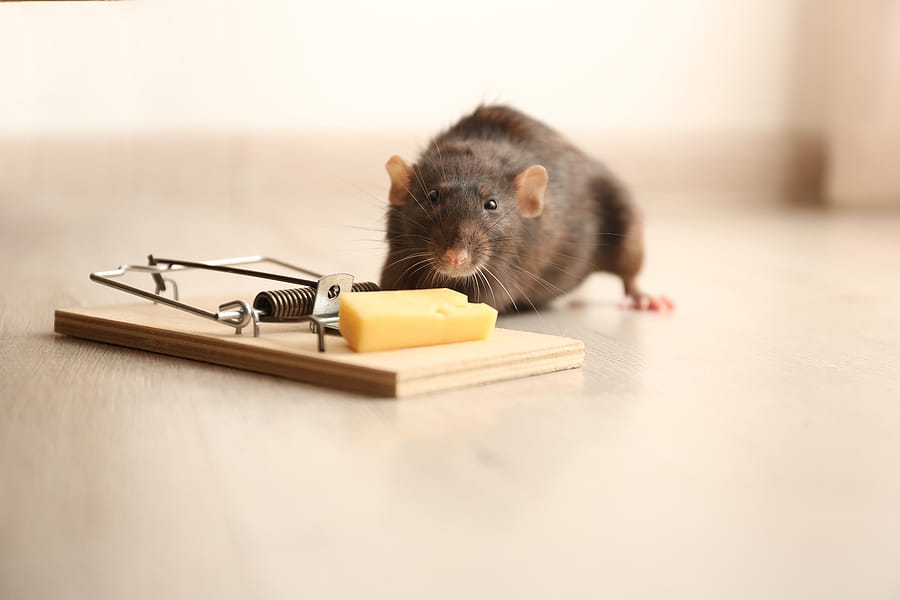
When it comes to household pests (like spiders, ants, roaches, and termites), there are several options for pest control to choose from. Should you use do it yourself pest control? Should you call a professional pest control company? What is the difference? What are the pros and cons of each? Here we break down the advantages and disadvantages of DIY vs professional pest control.
The key to effective pest control is proper identification. Appropriate treatment depends on the species of the pest, how far the infestation has spread, the size of the home, climate, and many other factors. DIY pest control products have labels with directions and warnings that are fairly simple to follow. Professionals, however, have the knowledge and training on industry trends and groundbreaking products that may not be readily available to household consumers. They know key indicators to look for and can provide quick assessments and effective treatments.
Cost is one of the biggest factors that influence DIY vs professional pest control treatments. While do it yourself products are typically less expensive than commercial products, they can end up costing you more in the long run. Most homeowners don’t treat a pest problem until they spot them; unfortunately by this point the infestation is usually already established. This could end up costing significantly more in treatment and damage repair costs than a professional service would. Professional pest control services can be more costly initially but save you over time through prevention.
DIY products are certainly convenient – you just head to your local hardware store and pick up what you need. Professional services have to be coordinated around their availability and your schedule, sometimes requiring you to be at home for the service.
Using chemicals of any kind can pose a hazard to yourself, your family, and your pets. DIY products can contain chemicals that the average consumer may not be familiar with. This can pose a threat to your and your family’s health. With a professional service the risk on the homeowner is taken away. Green pest control options are also available which are safe for both you and your pets.
The ultimate goal of any pest control treatment is effectiveness – you want it to work. With DIY methods, you usually only treat the areas where you see an active problem. These products are effective for small pest problems but typically aren’t strong enough or don’t last long enough for significant infestations. Pests are also highly adaptable and can become resistant to many chemicals used in these products. Professional pest control treatments use the most up to date methods and products. They can also treat areas where infestations have spread that you may not see such as inside walls, in attics, and crawlspaces.
DIY product guarantees will vary depending on the store or manufacturer. Most pest control companies will offer a service guarantee where they will come back and treat in between scheduled visits if a problem arises at no extra charge to the consumer.
As previously mentioned, most DIY products are designed to be used for an active problem. Oftentimes, these products aren’t used until after an infestation is already established. With a professional service, visits are set on a scheduled basis whether there is an active pest problem or not. This allows the technician to use preventative measures when infestations are gone to keep them from flourishing in your home.
When you have a pest problem, the main concern is getting it taken care of quickly and effectively whether that is through DIY methods or a professional service. Every situation is different and the main concern is the appropriate treatment for each individual situation. If you suspect you have a pest problem or would like a quote on services, contact a professional pest control company.
Why Rain and High Temperatures Bring Mosquitoes
What Are Those Little Red Bugs?
Wildlife: Leaving a Mess Behind
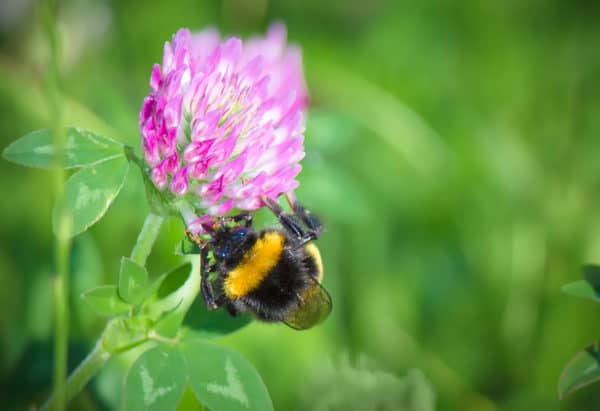
A household pest is any undesired animal that has a history of living, invading, causing damage to, eating food from, acting as a disease vector for, or causing any other harm to a human habitat. While most are considered a nuisance, household pests become dangerous when they pose a risk to health, property, or lifestyle. Household pests aren’t just limited to insects; they also include arachnids, rodents, and wildlife.
While household pests can be found year-round, some are more common in the summer months. Here are 8 of the most common summer household pests and how you can prevent them.
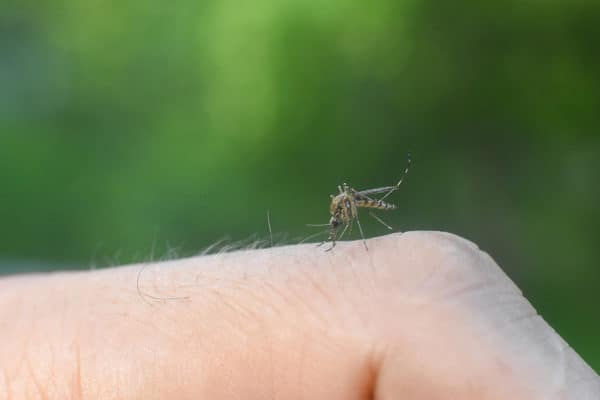
Mosquito season peaks in the summer months. The warm weather and humid environments accelerate their life cycle so they are able to reproduce in large numbers during this time. You are most likely to see mosquitoes when you have standing water on your property. Mosquitoes lay eggs in standing water and the hot, humid climate in summer is ideal for both breeding and to find food sources. Mosquitoes are dangerous to humans as they carry pathogens that can cause serious diseases like Zika and West Nile virus.
Mosquitoes can be prevented by:
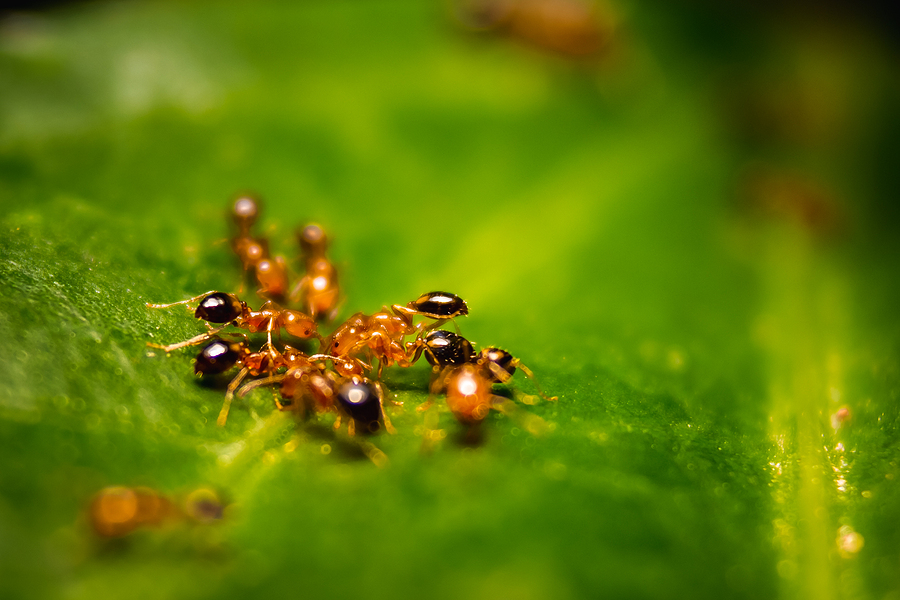
Ants hibernate in the winter and come out in full force over the summer. They have to forage in the summer months to feed their growing colonies and to build up their reserves for fall. Ants are usually seen indoors in the summer because they are searching for food and water as these can become scarce for them.
Ants can be prevented by:
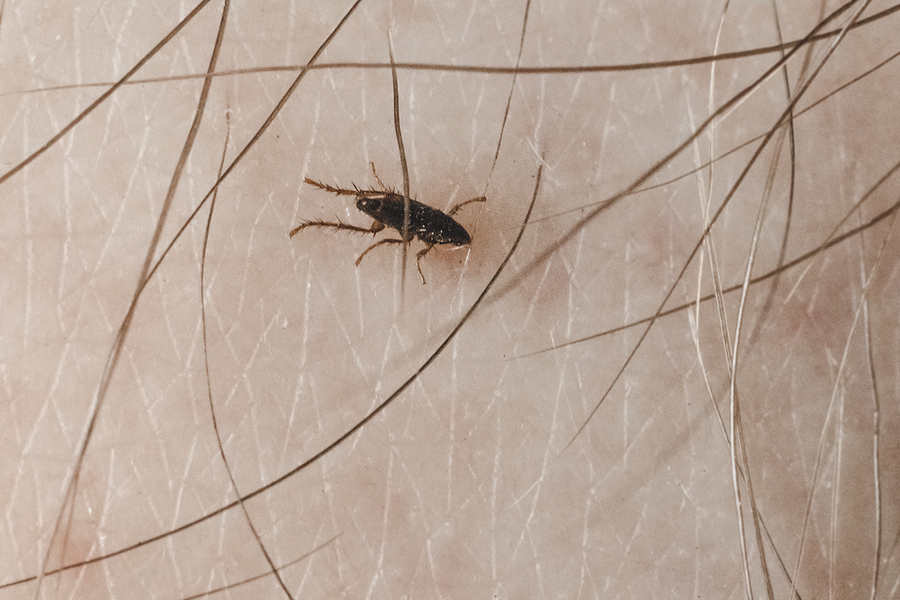
Fleas are prevalent in the summer months, although they can be found on pets year-round. Pets will indicate the presence of fleas by scratching and biting when they come in from outdoors.
Fleas can be prevented by:
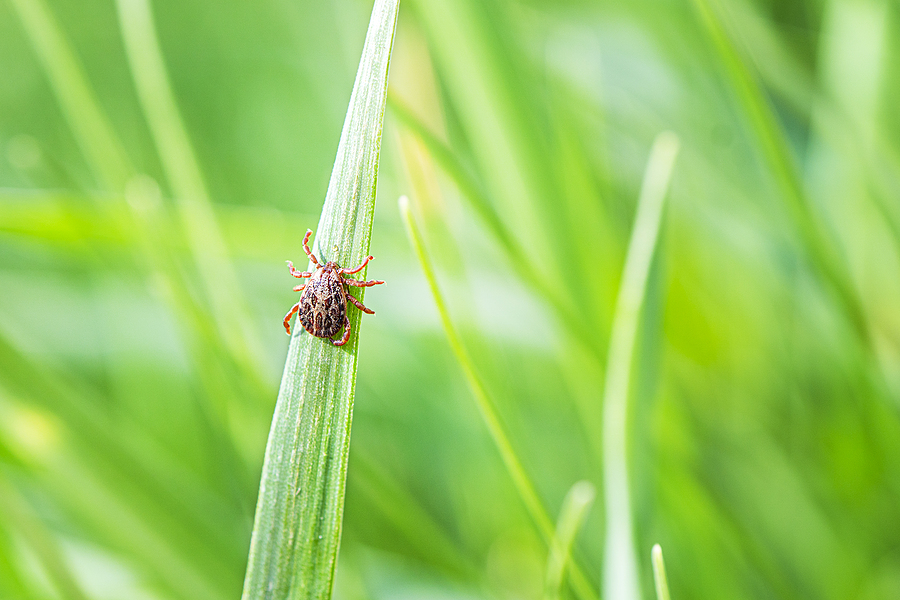
Ticks are problematic to humans and pets because they spread diseases like Lyme disease and Rocky Mountain spotted fever. Tick bites increase in the summer because people and animals are spending more time outside. The US is also seeing an increase in ticks because of the combination of mild winters and an increased population of deer and rodents which are known to carry ticks.
Ticks can be prevented by:
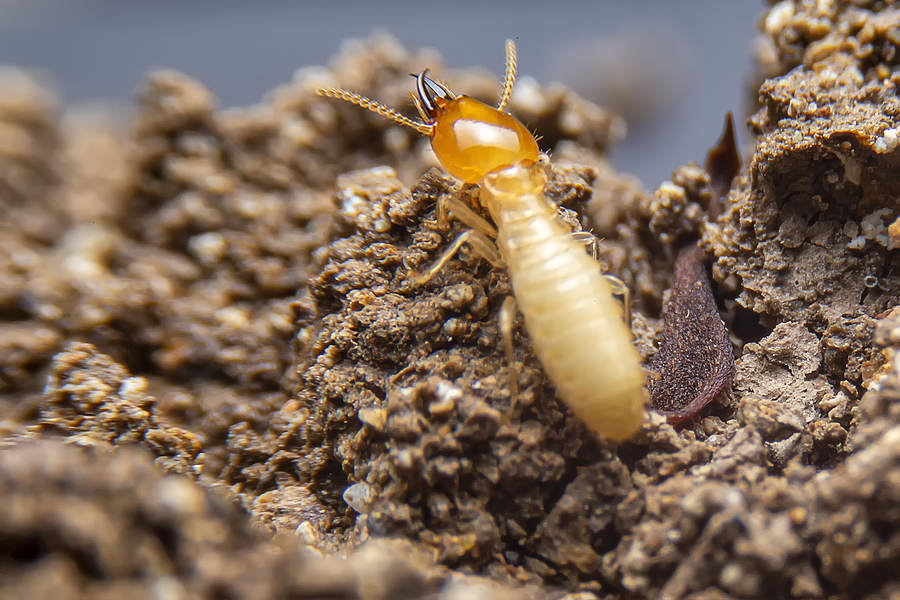
Termite swarming season is in the spring but these newly established colonies grow exponentially in the summer. Termites can go long periods of time undetected, causing significant damage to your home. It is important to keep an eye out for signs of termites so you can catch them early.
Termites can be prevented by:
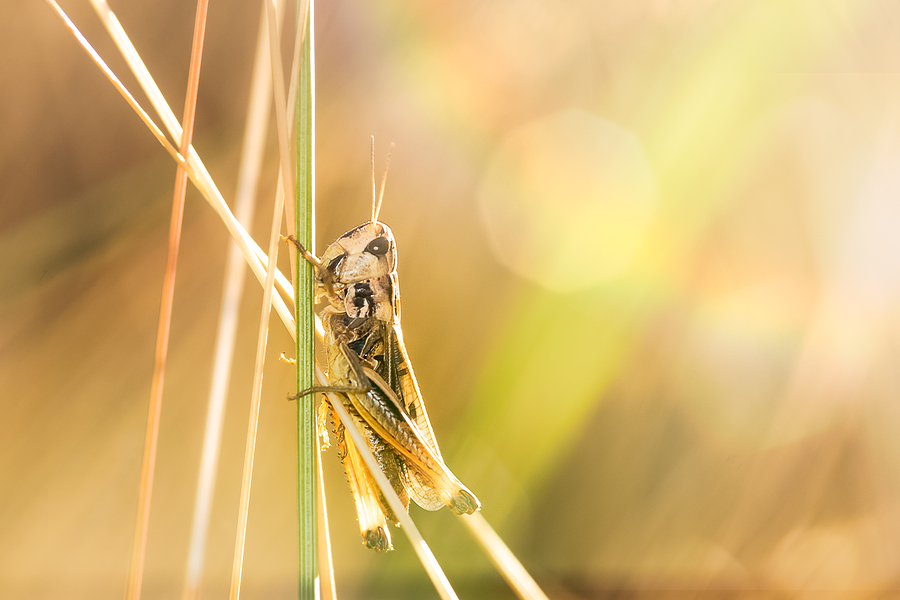
While most people view grasshoppers as just a nuisance pest, they can be devastating to gardeners and farmers. Grasshoppers can devour an entire field of crops in just a few days. Grasshoppers surge in large numbers in the summer months and are most prevalent in dry, hot summers. Grasshoppers can also cause damage to non-farmers as these are one of the only pests that can chew through screens.
Grasshoppers can be prevented by:
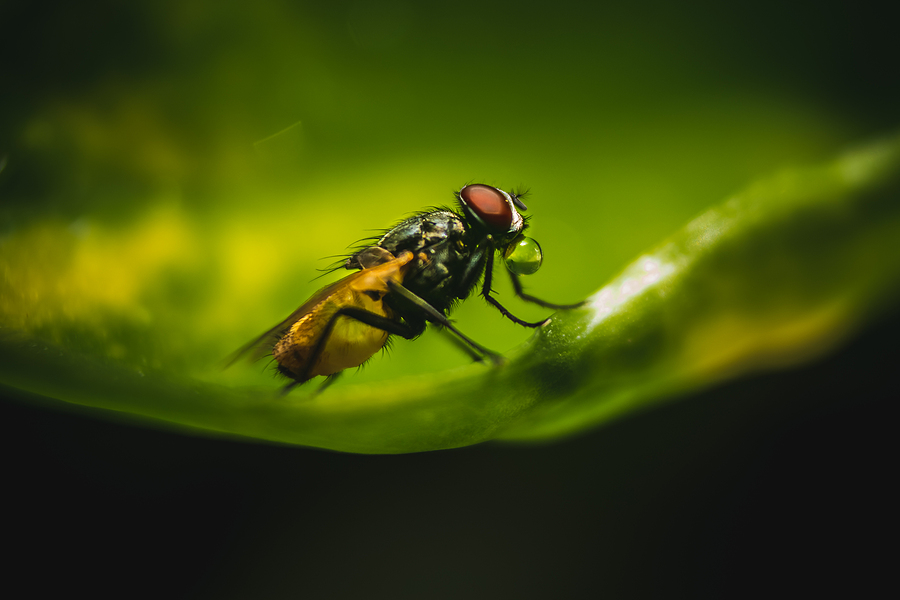
Flies invade your home in the summer months to escape the heat. They only reproduce during the hotter months and reproduce even more prolifically when they get indoors. Flies will stick around well into the fall months.
Flies can be prevented by:
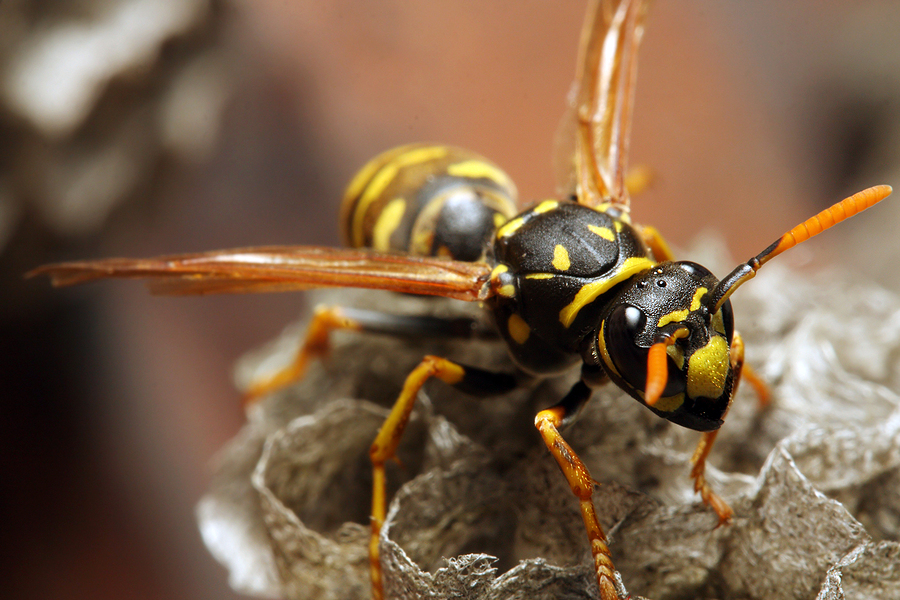
Stinging insects mate in the spring and their populations grow during the summer months. Hornets and yellow jackets are especially common in the summer because they have to establish new nests each year. These are usually found under decking or under piles of leaves. These stinging insects are potentially dangerous for people with allergies. Yellow jackets and bees can also get into the walls of homes, causing significant damage.
Stinging insects can be prevented by:
Don’t let these common summer pests ruin your summer. If you have a problem with any of these pests, contact a professional pest control company who can help eliminate them safely and prevent them going forward.
Termites: How to Stop Their Damage
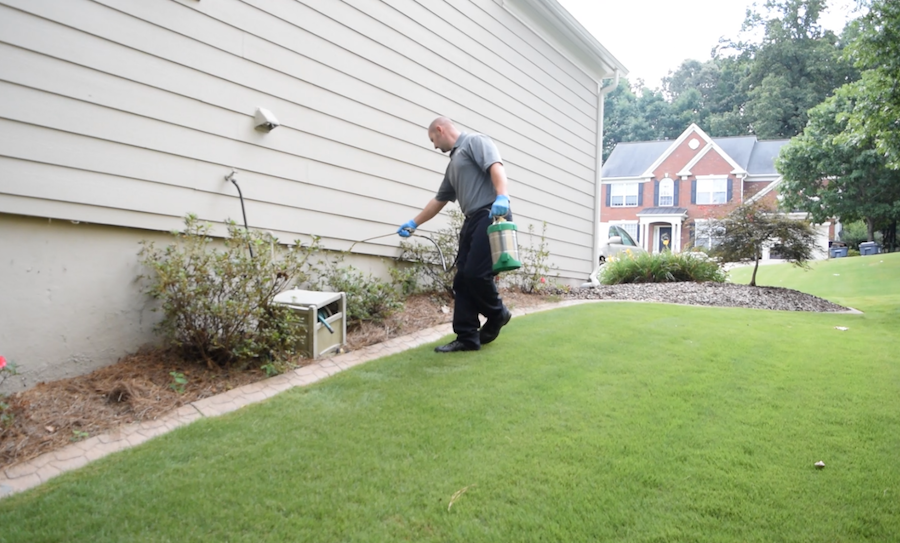
There are several methods of pest control out there from DIY pest control, to traditional pest control and green pest control from a professional exterminating company. No matter which method you choose, any pest control efforts are well worth the investment. Pest prevention is always the best first line strategy for pest control. Keeping your house clean and well-sealed, keeping your yard mowed, and practicing good hygiene in and around your home are all simple preventative measures that anyone can take. Pests can be tenacious, however, and sometimes these efforts just aren’t enough.
Pests can cause a multitude of problems for your home, property, and even your health. Some common household pests include termites, which can significantly damage or even destroy your home; cockroaches, whose droppings can spread disease and trigger allergies and asthma; mosquitoes, that can transmit diseases like West Nile virus and Zika virus; ants, which can cause painful bites and contaminate food; fleas and ticks, which not only cause painful, itchy bites but can also transmit serious diseases like Lyme disease and STARI; bed bugs, which can quickly infest your home and be quite costly to remove; and rodents, who can damage wood and wiring, as well as transmit serious diseases.
The National Pest Control Association estimates that Americans spent over $3 billion on pest control and extermination services last year. If you’ve ever had a pest problem in your home, most would agree that this investment in pest control is worth it. Here are the benefits to using a professional pest control company:
The health and safety of family and pets is at the top of the priority list for most people. Pests carry harmful diseases and bacteria that can expose your family and pets to illness. Eliminating these pests quickly can help minimize exposure and protect your family’s health and well-being in the long run. Many pest control companies now offer green pest control options that use products derived from flowers, plants, and natural earth elements rather than harsh chemicals.
Pest control professionals have the training, education, and expertise to handle many different types of pests. They know the safe and proper methods to identify, prevent, and eliminate each of these different pests, as well as where and how often to utilize them. They also have access to the most cutting edge technology and techniques in the field, as well as products and treatments that may not be readily available to consumers.
Pest control effectiveness is maximized by finding the source of the problem. If you have treatment without successfully eradicating the source, the problem will continue to recur in the future. Routine pest control includes a survey and pest control inspection inside and outside your home. This can not only help them identify the source of your current pest problem, but also identify any pest issues you may not know about yet or any issues that have the potential to become future problems. Based on their inspection, the pest control technician can provide you with a customized pest control program using the most innovative and advanced products and equipment, implementing Integrated Pest Management (IPM) techniques, that includes the inspection and plan, along with pest identification, ongoing perimeter protection, and continuous communication to help prevent problems in the future. Routine treatment and inspection also allows them to catch pest problems early before they have the chance to cause significant damage to your home and property.
While there may be a cost to you upfront, the cost savings in the long run can be significant for professional pest control services. Professional exterminating provides faster and more effective results than do-it-yourself methods, in most cases. They can also save you money in the future by identifying pest problems early and eliminating them fast, preventing a costly infestation and/or damage in the future. Most pest control companies also offer a service guarantee to come back between scheduled visits, if needed, at no additional cost to the consumer.
Ready to get started? Request a Free Pest Control Estimate Now.
The Dangers of Flea and Tick Bites